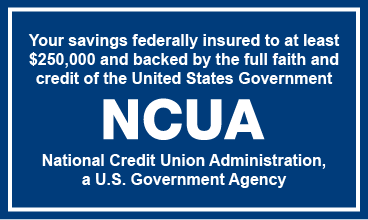Cybersecurity Month Insights: Securing Your Online Life
October 2023
Martha Ward, CISSP
VP of Technology & Digital Experience
In all areas of your online life, security is of the utmost importance. Here are a few actions you can take to stay diligent in protecting your information from fraudsters.
Enable Multi-Factor Authentication
For maximum protection, use multi-factor authentication, sometimes called MFA or two-factor authentication, whenever it’s an option. Think of MFA like an extra deadbolt for the front door of your house. Imagine your password is like a key to your house. With just one key, if someone finds it, they can easily get inside your house. MFA adds another layer of security because it’s like having a second lock that requires a different key. Nobody can get through your front door without having both keys. With MFA enabled, after entering your password, you are prompted for another code. This second code is often sent via text, from an Authenticator App or to your email. So, even if someone knows your password, they can’t get in without this second code. This extra step ensures that only you can access your important online accounts, like email and social media.
Use Strong and Unique Passwords
Having strong and unique password for each online account is crucial as it significantly enhances online security which protects personal information and online accounts. Reusing passwords for important accounts is very risky and should always be avoided. If a fraudster gets your password for one account, they could access your email, other personal information, and even your accounts. It’s also important to avoid using passwords that could be guessed from information about you from information on your social media posts or profile, such as pet names, favorite activities, special dates, or events. There are many safe and secure password manager programs for your computer or mobile devices that can generate and store passwords for you as well. If you need to create your own passwords, here are some ideas for creating strong passwords that you’ll remember!
- Make a password from the first letter of each word in a sentence. For example: Look at my unique and strong #1 password for Cyber Security month L@mu&s#1pfCSm
- Use a combination of at least 4 unrelated words with a space between each word. For example: “immovable goofball willing already”. If you find that the account is enforcing the inclusion of numbers, symbols or uppercase and lowercase in the password, add numbers and symbols between the words. For example: “Immovable2goofball*willinGAlready”
Update Your Software
Updating the software on your mobile device and computer is like locking the doors and windows at your home. Just as you secure your home to prevent burglars from entering, software updates act as security measures, reducing vulnerabilities that fraudsters could exploit. Neglecting updates is like leaving your doors unlocked – it makes it easier for fraudsters to break in, access your personal data, and potentially cause harm. Turning on automatic software updates can help ensure you have the latest security features, keeping your sensitive information safe and giving you peace of mind while you’re online. So, by simply keeping your software up to date, you’re taking a powerful step in protecting yourself from cyber fraud.
More CyberSecurity Resources
For more information including active cybersecurity alerts, helpful resources, and our online safety guide, please visit our Security Center page.



